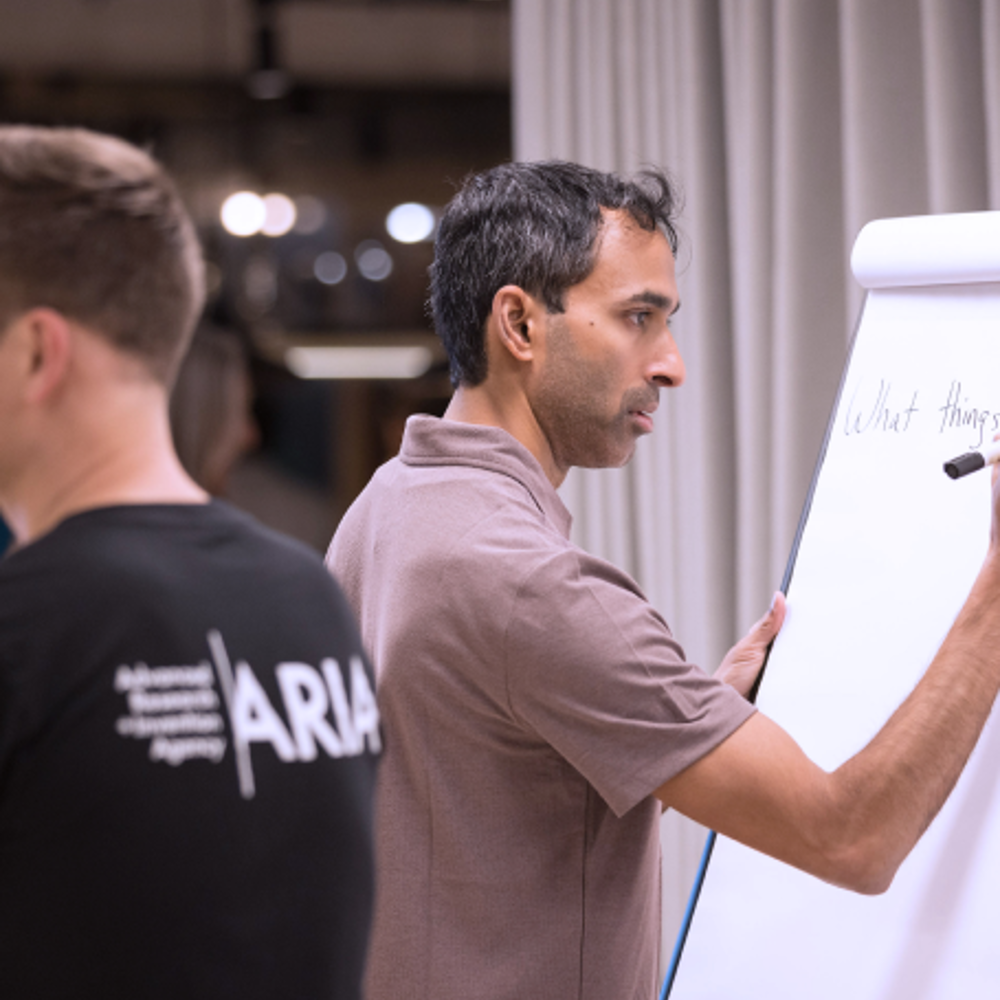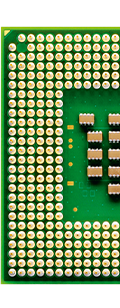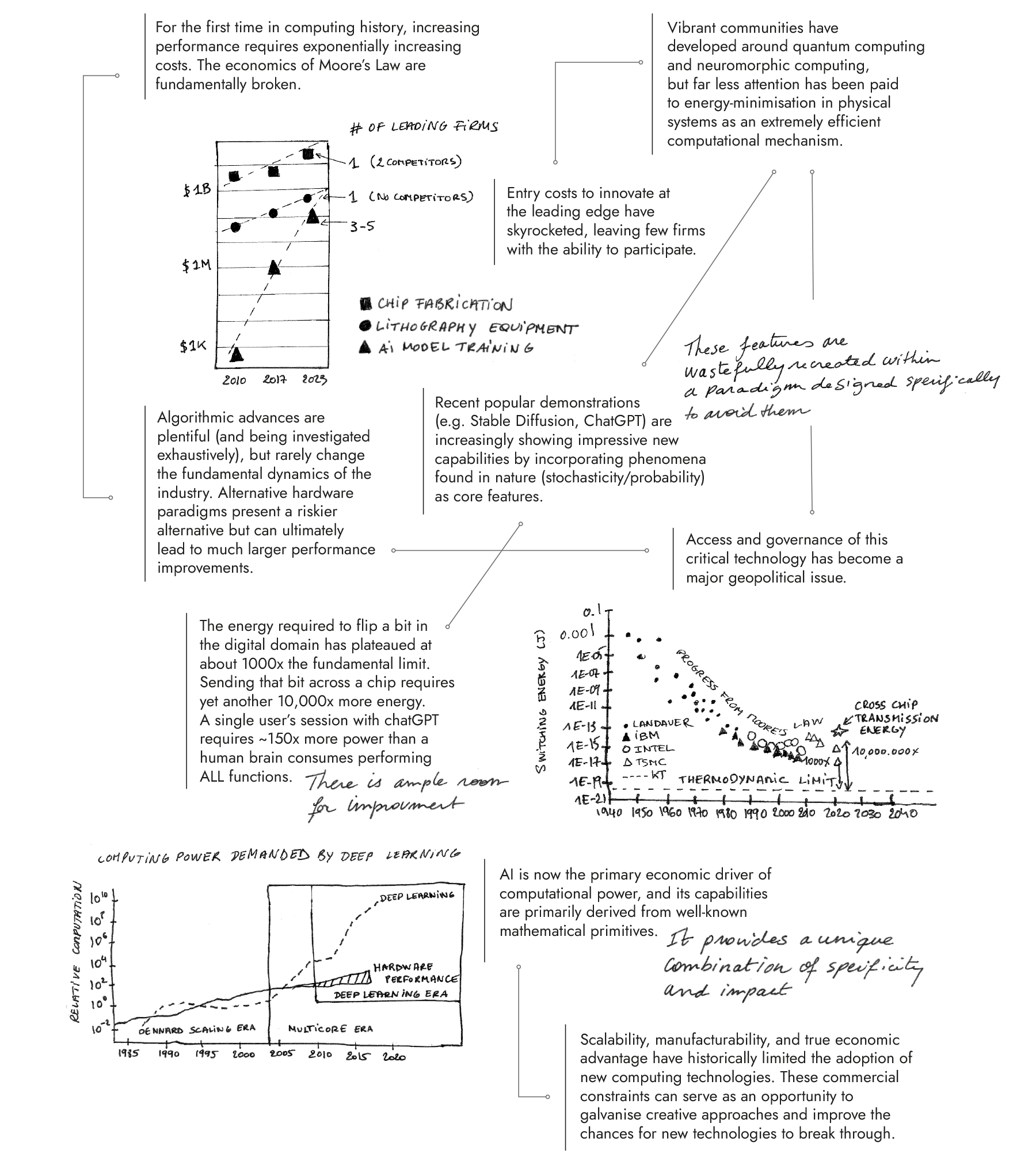What if we could exploit principles found in natural systems to build dramatically more efficient computers?
Defined by our Programme Directors, opportunity spaces are areas we believe are likely to yield breakthroughs.
In Nature Computes Better, we are examining whether the natural world presents us with an opportunity to redefine the way computers process information.
Beliefs
The core beliefs that underpin this opportunity space:
The growth of AI exacerbates an already unsustainable demand for compute → we need alternative scaling pathways.
Natural systems are orders of magnitude more efficient than silicon microprocessors at a wide range of computational tasks → a stronger understanding of how living systems compute is needed to advance both engineering biology and the creation of new hardware.
Investigating the role of statistical physics and nonlinear dynamics in novel hardware represents a significantly underexplored opportunity → exploiting these approaches is likely to yield new modalities for AI processing.
Modern AI has massive and broad applicability but is underpinned by a narrow set of mathematical kernels → this presents a unique opportunity for the development of next-generation computing paradigms.

Programme: Scaling Compute
To build a programme within an opportunity space, our Programme Directors direct the review, selection, and funding of a portfolio of projects.
Backed by £42m, Scaling Compute unites expertise across three critical technology domains (AI systems design, mixed-signal CMOS circuits, and advanced networking) looking to redefine our current compute paradigm.
Opportunity seeds
Outside the scope of programmes, with budgets of up to £500k, these opportunity seeds support ambitious research aligned to the Nature Computes Better opportunity space.
From unravelling the basis of natural computation in single-celled organisms to demonstrating a commercially viable probabilistic processor, we're funding an array of projects across individual research teams, universities and startups to maximise the chance of breakthroughs.
Cell Learning for Natural Computing
David Jordan, Independent researcher
Physically-Reconfigurable Computing: Learning how to learn
Neil Gershenfeld, Massachusetts Institute of Technology
(Bio)active Matter Based Computation
Juliane Simmchen + Kimia Witte, University of Strathclyde
Probabilistic Computing with Magnetic Tunnel Junctions
Shannon Egan, Brock Doiron + Ashraf Lotfi, Deep Science Ventures
Embodied Cognition in Single Celled Organisms
Kirsty Wan, University of Exeter
Analog and Digital Representation of Distributions of AI Computations
Phillip Stanley-Marbell, Signaloid
Creating Scalable Manufacturing for Optical Computing
Martin Booth, University of Oxford
Brain-inspired Polychromic Spatially Embedded Neuromorphic Networks with Unprecedented Memory
Danyal Akarca, Imperial College London
Lossy Computational Models
Viv Kendon, University of Strathclyde; Susan Stepney, University of York
Two-Point Neurons-Inspired Economic and Ethical Neuromorphic Co-Design
Ahsan Adeel, University of Stirling
This opportunity space is part of our rolling seed call experiment – see what's in scope for opportunity seeds in this space by reading the original call for proposals and apply at the link below.
Sign up for updates
Stay up-to-date on our opportunity spaces and programmes, be the first to know about our funding calls and get the latest news from ARIA.


